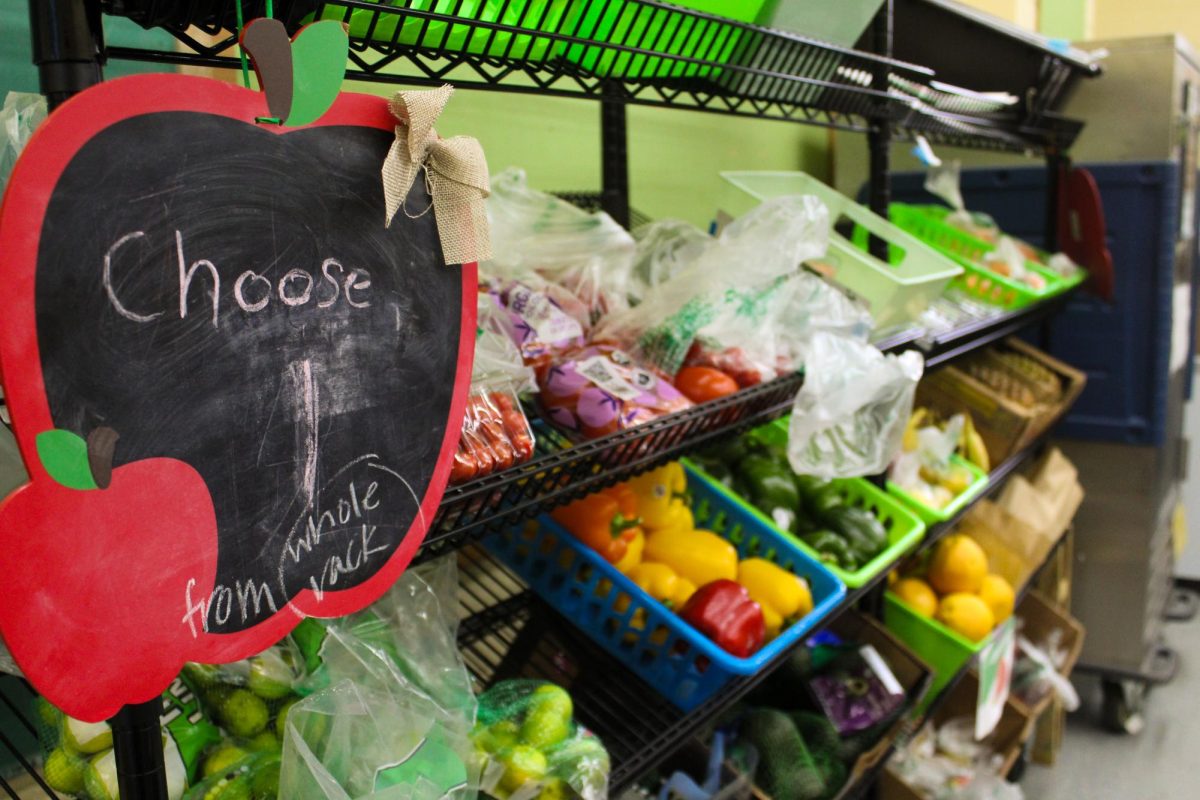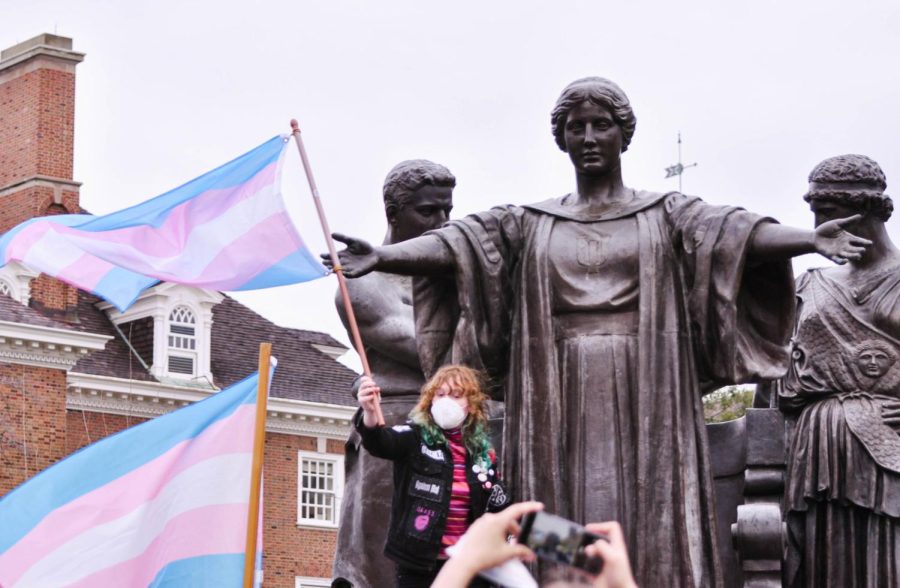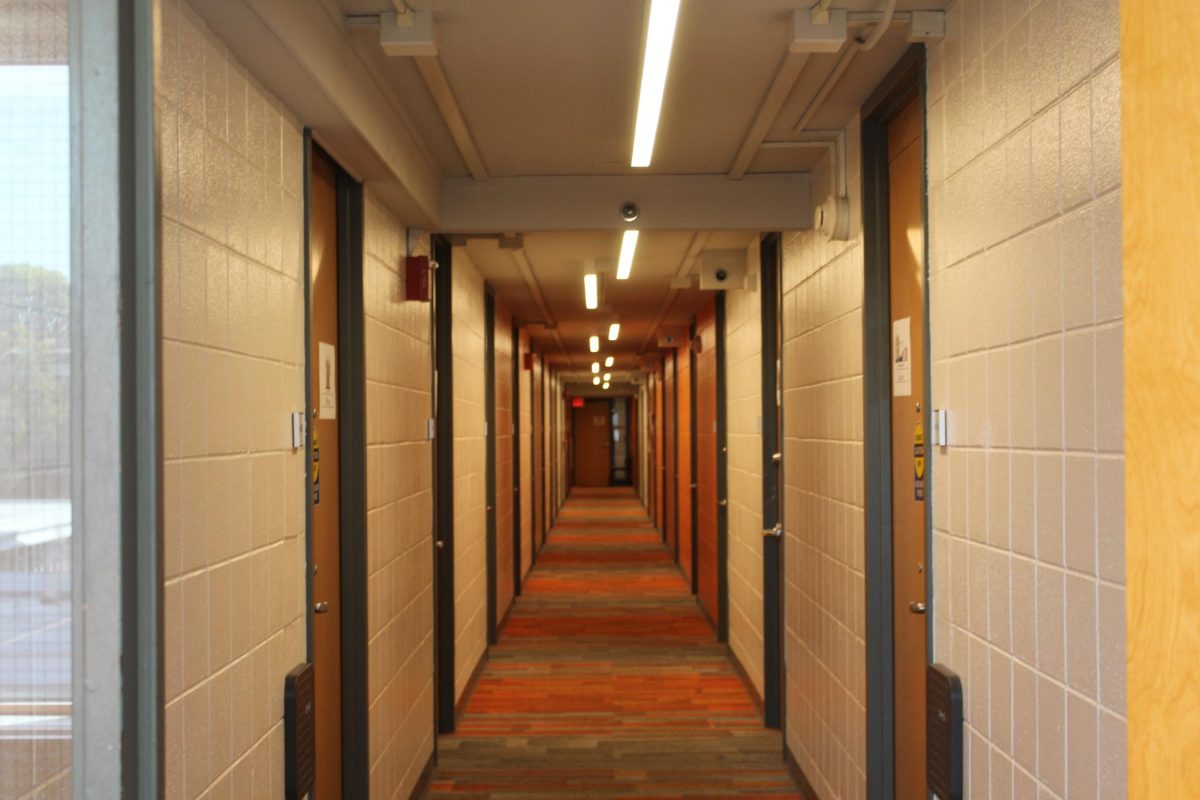Rudy LaFave, junior in ACES, and Hunter Farnham, sophomore in Information Sciences, were elected as student body president and vice president in the recent Illinois Student Council election.
Ahead of their upcoming term, the pair spoke about some of their plans and how they feel about being newly elected.
“It still has not sunk in that Hunter and I are the elected student representatives of the student body,” LaFave said. “It is really humbling to put the work in on campus and see how you get recognized. A big thing that Hunter and I did that I was really appreciative of was that we did not have to sell ourselves, we had to tell ourselves.”
LaFave believes that their prior experience mixed with their ability to pinpoint specific aspects of campus they want to improve on were the reasons they were elected.
“It was a shock to know that close to 2200 people clicked my name, which was pretty wild,” Farnham said. “Things have just started to sink in. We started to have a lot of meetings with various people involved in ISC, our faculty advisor and the outgoing vice president and president. Both of us are very excited about the process.”
Get The Daily Illini in your inbox!
LaFave and Farnham then went on to further explain some of the things they hope to accomplish this term.
“I feel like ISC has a pretty negative reputation on campus,” Farnham said. “I feel like the current president and vice president have done a lot to fix that, and I think they’ve laid a good foundation, but I think that Rudy and I are excited to sort of take that foundation and actually use it to advocate for students.”
Both Farnham and LaFave had a variety of joint stances on issues and changes needing to be addressed on campus, but Farnham goes on to discuss a personal goal he is looking forward to achieving.
“Personally, one of the things I am most excited to accomplish is working closely with (registered student organizations) and students on campus,” Farnham said. “I want ISC presence to be felt on campus, and that involves sending members of our cabinet or Rudy or myself to RSO meetings, tabling constantly and making it so students can easily approach us.”
LaFave expressed his optimism toward working with RSOs on campus and addressing issues students deem important.
“I am most excited to be on the ground with RSOs, and I think that speaks to my leadership style and how I have worked with activism beforehand,” LaFave said. “I am excited to go to these meetings and meet these teams and ask how we can uplift your group of students on campus.
“I am excited to keep being a student on campus and have people come up to me and have a conversation with me about something they want to see,” LaFave continued. “I think sometimes those are the most productive conversations that could have been had as that is someone who has been through a different experience than I did.”
The University’s Mental Health Center was a common topic of debate among candidates during the election due to the variety of issues students face using the service. LaFave went on to discuss their plans to improve the mental health outreach program on campus.
“We need to come to understand why the system is the way that it is now, and I think that once we have a conversation with the administrators about how we see it and how the vast majority of the student body sees it, (only) then we can move on to expand things like the week and the timeframe that students can sign up for mental health services and the number of counselors,” LaFave said.
The Illinois Commitment Scholarship was also one of the main talking points of their campaign. Farnham discussed why they believe the problem is occurring.
“The Illinois Commitment Scholarship program is incredibly complicated,” Farnham said. “It is a question of finances because it is a very expensive program, but I think it’s also a program that is necessary … because it is literally one of the only reasons many people we know are on this campus.”
As one of the proposed initiatives, LaFave and Farnham eagerly look to tackle the tight relationship between the University and fossil fuel companies as well.
“Fossil fuel companies are not going to be within our low-carbon future,” LaFave said. “We need to have a serious conversation about a defensive strategy within our endowment systems, and that is divesting from fossil fuels.”
To further explain the problem, LaFave pointed out how these companies will harm the environment, yet the University is still receiving ample donations from them.
“These companies hold two times the risk of any other average equity within the S&P 500 index and are spending less than 1% of their budgets on transitioning into a low-carbon future,” LaFave said. “(The) University had received hundreds of millions of dollars in donor money from BP alone between the years of 2013 and 2023.”
“We, as a university, need to take a hard stance and a hard look at the future of our endowments and really question whether or not we see a profitability and a long-term sustainability within these fossil fuel companies in our dominant system,” LaFave said.
To add on, Farnham shared his opinion on the inevitability of fossil fuel divestment.
Another initiative that LaFave and Farnham want to work on would be the monthly meeting with RSOs and cultural houses. To show how that works, LaFave subsequently shared a recent problem they have been dealing with.
“One of the concerns La Casa had brought up was that they don’t have a refillable water bottle station on any point of Nevada (Street),” LaFave said. “That is an example of how we, as a student president and vice president, can direct resources to them — whether that’s going to be the Student Sustainability Council to ask for funds in order to get that done, or ourselves — (having) conversations with the admin to keep that process going.”
“We can just point-blank and say, ‘What do you guys need?’ (or), ‘How can we help you?’, whether that is hosting an event or funding a program,” Farnham said.
“If we just continue to have conversations, I feel like those will just continue to crop up,” LaFave said. “We’ll learn a lot about the campus in the meantime, and we will be able to literally solve some of the problems that are actively ongoing within these RSOs and cultural houses.”
Farnham added that the referendum previously passed in regards to providing abortion pills to students through the McKinley Health Center is also something the duo wants to expand upon.
“That referendum passed with 75% support, so obviously, we know students support this,” Farnham said. “So, Rudy and I want to be the ones to take that to the administration and have those conversations with McKinley and with the University Health Center to see how we can get this from a hypothetical referendum question into actually being something that students are able to access in a very easy, affordable way.”
As the incoming ISC president and vice president, LaFave and Farnham both hope to address any concerns raised by University students and are looking forward to helping them be connected with the school after they are officially sworn in.
“I, myself, really think that this is an opportunity to be able to advocate to administrators and to essentially have a seat at the table to really express students’ concerns and advocate the different ways that we want to move forward on campus,” LaFave said.
“Historically, I feel like ISC, or formerly ISG, has a fairly negative reputation on campus,” Farnham said. “Rudy and I want to change that and hopefully make students feel that ISC is actually doing something on their behalf.”





